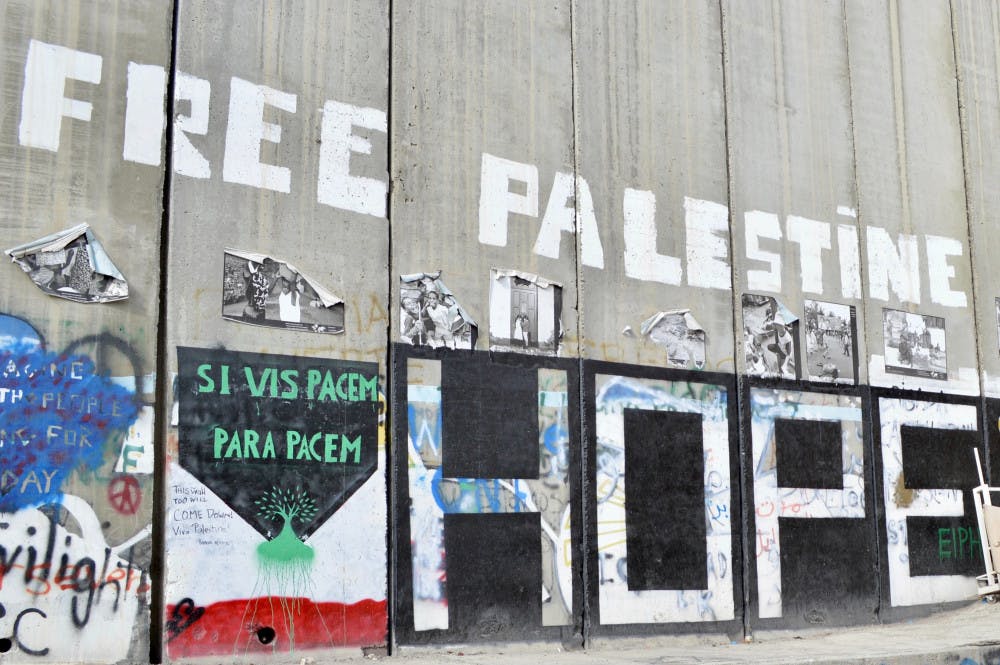
In “Why Did Israel Kill My Son?” Palestinian poet and journalist Ahmed Abu Artema recounts surviving a bombing in southern Gaza on Oct. 24. Among ruins of their collapsed house, he saw his son and daughter screaming and pointing to their injured sibling Abboud, 12, who’d later die in intensive care. Abu Artema’s two aunts and 10-year-old niece Joud also died in the explosion. He laments, “What killed my son was a regime whose very existence is defined by and built on expulsion and genocide.”Following Hamas’s Oct. 7 massacre of 1,000 Israeli civilians and kidnapping of 220 Israelis, Israel swiftly launched a scorched-earth response perpetuating the vicious circle of bitterness and bloodshed. Nearly a month into the war, Israel has slaughtered around 13,000 Palestinians in Gaza, where approximately 70% are women and children. Nearly all are civilians. The precise death toll remains unknown as bodies lay under the rubble of bombed homes, hospitals, schools and marketplaces.Israel’s civilian death toll thankfully stabilized, aside from a small number of Jewish deaths from Palestinian rockets and Israeli fire. However, Israeli forces continue to slaughter Palestinians by the thousands, attacking areas with no military target and often giving no advance warning. They’ve used white phosphorus, a banned weapon. Even during moments of reprieve from bombs and bullets, Gaza’s more than 1 million adults and 1 million children struggle to survive as Israel bans entry of nearly all food, water and fuel.Announcing genocidal intentions, Israeli Prime Minister Benjamin Netanyahu invoked a Biblical instruction to “slay both man and woman, infant and suckling.” Israeli President Isaac Herzog declared, “It is an entire nation out there that is responsible.” Using dehumanizing language reminiscent of historical genocidal regimes, Israeli defense minister Yoav Gallant announced “There will be no electricity, no food, no fuel, everything is closed. We are fighting human animals and we act accordingly.” Israeli military spokesperson Daniel Hagari explained, “The emphasis is on damage and not accuracy.” The New York Timesreported “Israeli leaders believed mass civilian casualties were an acceptable price,” and officials cited “the dropping of the two atomic warheads in Hiroshima and Nagasaki” as a model.Although Israeli propaganda tries to deflect blame by accusing Hamas of using civilians as “human shields,” Amnesty International, Human Rights Watch and United Nations investigators have time and again found no evidence for the accusation. These groups add that it’s illegal to kill human shields. Israeli leaders also claim the war will destroy Hamas, butrecent history shows Hamas won’t likely be defeated through military means. Gazan support for Hamas significantly increased after Israel’s bombardments in 2014 and 2021. There’s nothing like war and massacre to harden one’s heart. Palestinian anti-Hamas activist Rami Aman explains that Israeli missiles are “creating more Hamas.” Maybe they’ll create something worse. While Israel massacres Palestinians, its conflict with Iranian-backed forces in Lebanon and Syria could spark regional war and possibly even ignite planetary catastrophe because Israel possesses nuclear weapons. People of conscience should call for an immediate ceasefire and release of Israeli and Palestinian hostages, including some 1,200 Palestinians that Israel has imprisoned without issuing charges.However, deeper measures are needed to confront the conflict’s root cause: Israel’s settler-colonial structure known as Zionism. For 75 years, Israel has maintained a Jewish supremacist regime denounced by Amnesty International and Human Rights Watch as “apartheid.” Israel has never granted equal rights to Arab citizens nor allowed the return of Palestinian families who were expelled during the 1947 War of Independence. Israel has occupied the West Bank since 1967 and kept Gaza under inhumane and illegal siege since 2007. From 2008 to 2023, the ratio of Palestinian-to-Israeli fatalities has been more than 20 to 1. This is the context that led to the events of Oct. 7. Resistance to colonialism is inevitable. It’s tragic but unsurprising that Palestinian militants followed Israel’s pattern of disregarding the laws of war.To achieve enduring peace, we can support the Palestinians’ nonviolent Boycott, Divestment, Sanctions (BDS) movement pressuring Israel to provide justice and equality for all residents and refugees. It’s supported by an overwhelming majority of Palestinians and also by the Israeli group Boycott from Within. Here in the United States, BDS is supported by Jewish Voice for Peace, Black Lives Matter and Indigenous peoples’ campaigns for Land Back. These groups also demand that the U.S. government stop sending Israel billions of dollars in annual military aid.We can likewise support the One Democratic State (ODS) campaign which proposes secular democracy between the Jordan River and the Mediterranean Sea. In 2007, some 70% of Palestinians said they would support “a one-state solution in historic Palestine where Muslims, Christians and Jews live together with equal rights and responsibilities.” ODS gains increasing relevance as expanding settlements fragment the West Bank and render the “two-state solution” obsolete.Finally, we can join anti-racist initiatives to educate our communities about anti-Jewish and anti-Muslim bigotry, using resources such as “Understanding Antisemitism” by Jews for Racial & Economic Justice and “Challenge Islamophobia” by Teaching for Change. When Jews and Muslims feel safety through solidarity, it will become more possible to overcome divisions and jointly advocate for global justice, including in Gaza. Massacre won’t bring peace to Palestinians and Israelis, but worldwide demonstrations for a ceasefire and decolonization offer glimmers of hope.
Dan Fischer
Notre Dame M.A. class of 2020 and Jewish community organizer
Nov. 5










